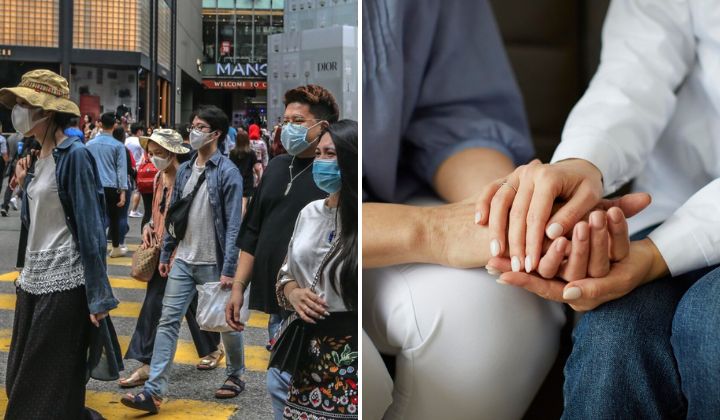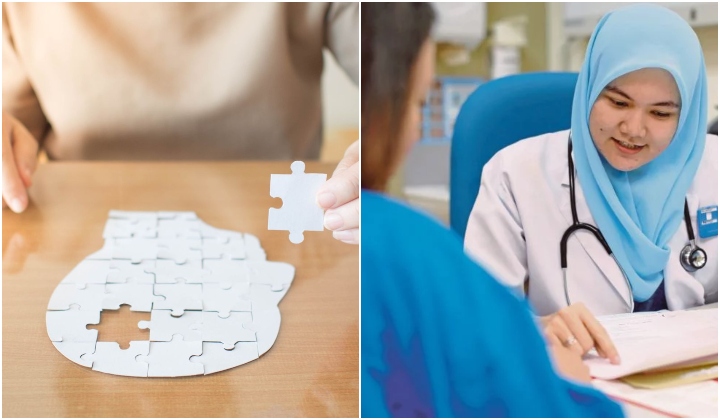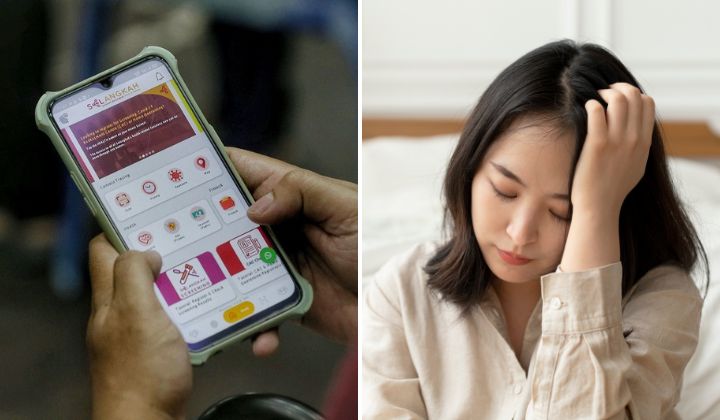6 In 10 Malaysian Youths Experience Mild To Severe Depressive Symptoms, Says Survey
The survey was conducted from October to November 2022 and March to April 2023 involving 5,867 respondents.

Subscribe to our FREE Newsletter, or Telegram and WhatsApp channels for the latest stories and updates.
Malaysia is the first country in the world and ASEAN to create the Youth Mental Health Index and the survey revealed some interesting results.
The Malaysian Youth Mental Health Index 2023 (MyMHI’23) was conducted by the Institute for Youth Research Malaysia (Iyres) and the United Nations Children’s Fund from October to November 2022 and March to April 2023 with 5,867 respondents.
The youths’ mental health was measured against seven domains: lifestyle, surrounding environment, personal characteristics, life experiences, social support, coping mechanism, and healthy mind.
In 2022, the report stated that 6 out of 10 youths aged 15 to 40 years old experience mild to severe depressive symptoms, 3 out of 10 have moderate to severe anxiety symptoms, and 1 out of 10 experience high stress.
In 2020, 1 out of 10 youths aged 15 to 30 years old tend to commit suicide through thoughts, plans, and attempts.
The survey results also showed that in 2019, 953 tend to commit suicide but the numbers rose to 2119 people in 2020.
READ MORE: Knowing The Difference Between An Anxiety Attack And A Panic Attack

Despite the dire results, the overall mental health level score of Malaysian youths is 71.91, which is considered moderately satisfactory.
This means Malaysian youths do experience some stressors in life, especially those related to the domains of the surrounding environment, social support, and healthy mind. The report added that things can still be improved to help youths.
Credit must be given to the youths because the report found that many young people are trying to maintain a relatively balanced lifestyle to improve their mental health.
The youths also possess valuable traits to overcome multiple health challenges which help in boosting resilience and fostering positive mental health and well-being.
Some of the top four stress management strategies they employed are:
- Engaging in leisure activities (93.57%)
- Spending time with family and friends (89.80%)
- Engaging in worship or spiritual practices (87.01%)
- Spending time on outdoor activities (86.66%)
Under the life experience domain, the survey stated that the majority of Malaysian youth are unlikely to experience negative events in their life such as bullying and abuse.
Based on the Social Support Domain results, Malaysian youths still lack adequate support from their families, friends, significant others, and experts.
The overall score under the Social Support Domain is 68.29, indicating a moderately satisfactory level of social support.
When it comes to ethnicity, the Orang Asli scored the lowest in mental health at 62.48. This is followed by Indians (70.05), Others (70.99), Bumiputera Sabah (71.04), Malay (71.84), Chinese (72.91) and Bumiputera Sarawak (73.37).
The suggested interventions
Fortunately, the report outlined several recommendations to help improve the mental health of Malaysian youths.
The first recommendation is to create living spaces that are not overcrowded and are equipped with adequate facilities. A good living space helps to foster a supportive and stress-free environment.
To do this, policies for spacious, affordable housing need to be implemented with an emphasis on green spaces and recreational facilities to promote physical activity and social interaction.
Having multi-use community centres that serve as hubs for mental health programmes, indoor and outdoor activities, and cultural events can help foster a sense of community and belonging.

The other important thing is to improve youth’s accessibility to mental health services, especially for the underserved and rural populations, including individuals under 18.
Other than promoting mental health hotlines, it’s suggested that creating apps for youth to equip them with mental health resources and creating positive support groups like Kafe@TEEN can get youths help at a faster rate too.
READ MORE: MySejahtera Activates MyMinda To Help Malaysians Assess Mental Health Status
READ MORE: ‘Stress Busters’ Toons Teach Kids How To Take Care Of Their Mental Health
In addition to promoting healthy lifestyles, youths need improved access to healthy foods in schools, educational institutions, and food premises.
Schools and educational institutions are encouraged to promote physical activity through structured sports programmes and informal play to promote a healthy, active lifestyle as well.
Another beneficial recommendation is equipping youths with financial literacy through community forums and workshops. Financial insecurity can lead to poor mental health so it’s best to get ahead of it.
As for family relationships, it’s suggested to develop platforms where parents and youths can learn and practice positive communication, conflict resolution, and emotional intelligence.
The full report can be read here.
If you need help or someone to talk to, here’s a list of helplines:
Mental Health Psychosocial Support Service
Tel: 03-2935 9935 or 014-322 3392
Talian Kasih
Tel: 15999 or Whatsapp 019-2615999
Befrienders KL
Tel: 03-7627 2929
Website: www.befrienders.org.my/centre-in-malaysia
Talian Buddy Bear (For children, toll-free, 6pm-12am)
Tel: 1800-18-BEAR or 1800-18-2327
FB Messenger: buddybear.humankind
MySejahtera Digital Healthcare
In the app, click on ‘MyMinda.’
Share your thoughts with us via TRP’s Facebook, Twitter, Instagram, or Threads.





